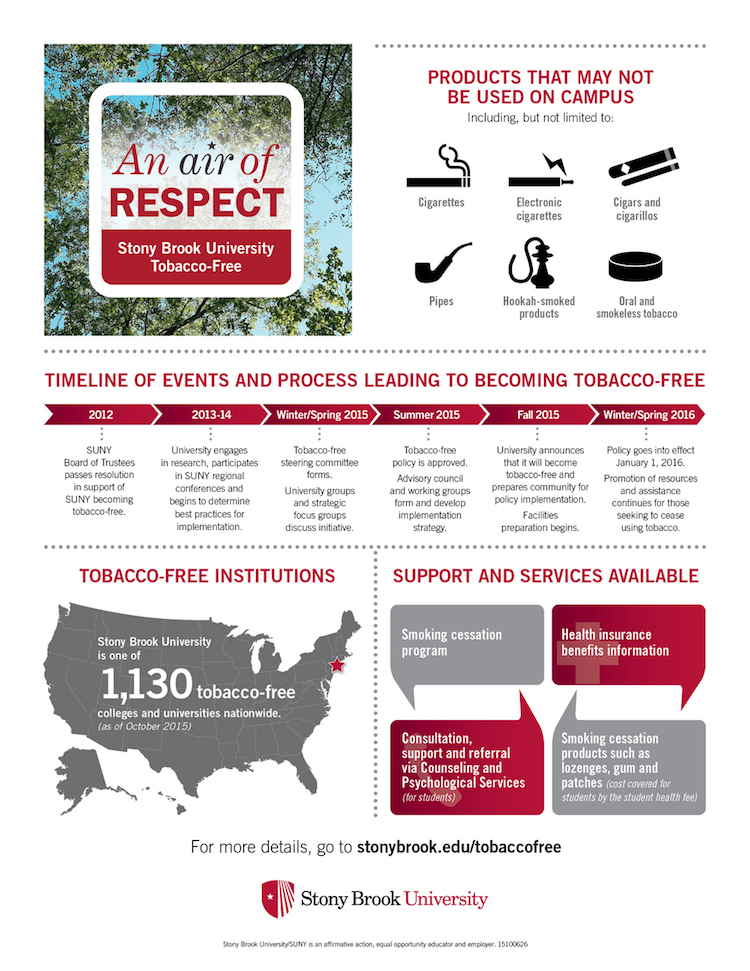
An Air of Respect: Stony Brook University Tobacco-Free Initiative
August 2016-More than 1,000 colleges (including several SUNY schools) are currently 100% tobacco-free. It's no surprise that many institutions are moving in this direction. Over the years, smoking and tobacco use have been phased out of many public areas, including airports/airplanes, train stations/trains, sporting venues, hotels, restaurants and parks.
Stony Brook implemented a tobacco-free policy on January 1, 2016, which includes all tobacco and smoke/vapor-producing products.
Stony Brook University has been "smoke-free" indoors and in certain outdoor areas for quite some time; in fact, the SUNY Board of Trustees passed a resolution in 2012 expressing "support of a tobacco-free SUNY policy and the enactment of legislation that bans the use of tobacco on grounds and facilities, and in vehicles owned, leased or controlled by the State University or its related entities." Since then, SUNY state-operated campuses and community colleges have been working to develop their own institution policies and implementation plans.
Why is becoming tobacco-free important? Among the most important reasons is it fosters a culture of respect for others. It also enhances health and wellness, and complements our sustainability efforts. In addition, it helps curtail costs related to cleaning, repairing and maintaining damaged facilities and areas due to tobacco product use.
After speaking with our students and employees, and looking at the experiences/best practices of other colleges, in addition to consulting with nationally recognized expert Ty Patterson from the National Center for Tobacco Policy, it was decided that there will be no designated areas for smokers on campus under the tobacco-free policy.
The tobacco-free policy is not intended to be punitive and does not force individuals to stop smoking or using tobacco outside of our campus. For those who would like smoking and/or tobacco use cessation assistance, Stony Brook University will continue to offer support and services through the Student Health Service, "Healthier U", and Employee Health Services at Stony Brook University Hospital.
The conversation around Stony Brook becoming tobacco-free started several years ago and included strategic focus groups with broad representation of people and groups across campus. An advisory council consisting of students, faculty, staff and administrators — some of whom are former or current smokers — provides advice on how Stony Brook can best implement all that goes into making Stony Brook a tobacco- and smoke-free campus community. Specifically, the advisory council provides advice to a steering committee and working groups that focus on students, employees, communications/marketing, and facilities.
At the heart of going tobacco-free as a campus community is the University's core mission to educate and to help people learn how to manage their reduction of tobacco use while on campus. Education is the guiding principle and it's important for the community to respect and embrace that tobacco use is not accepted at Stony Brook University.

